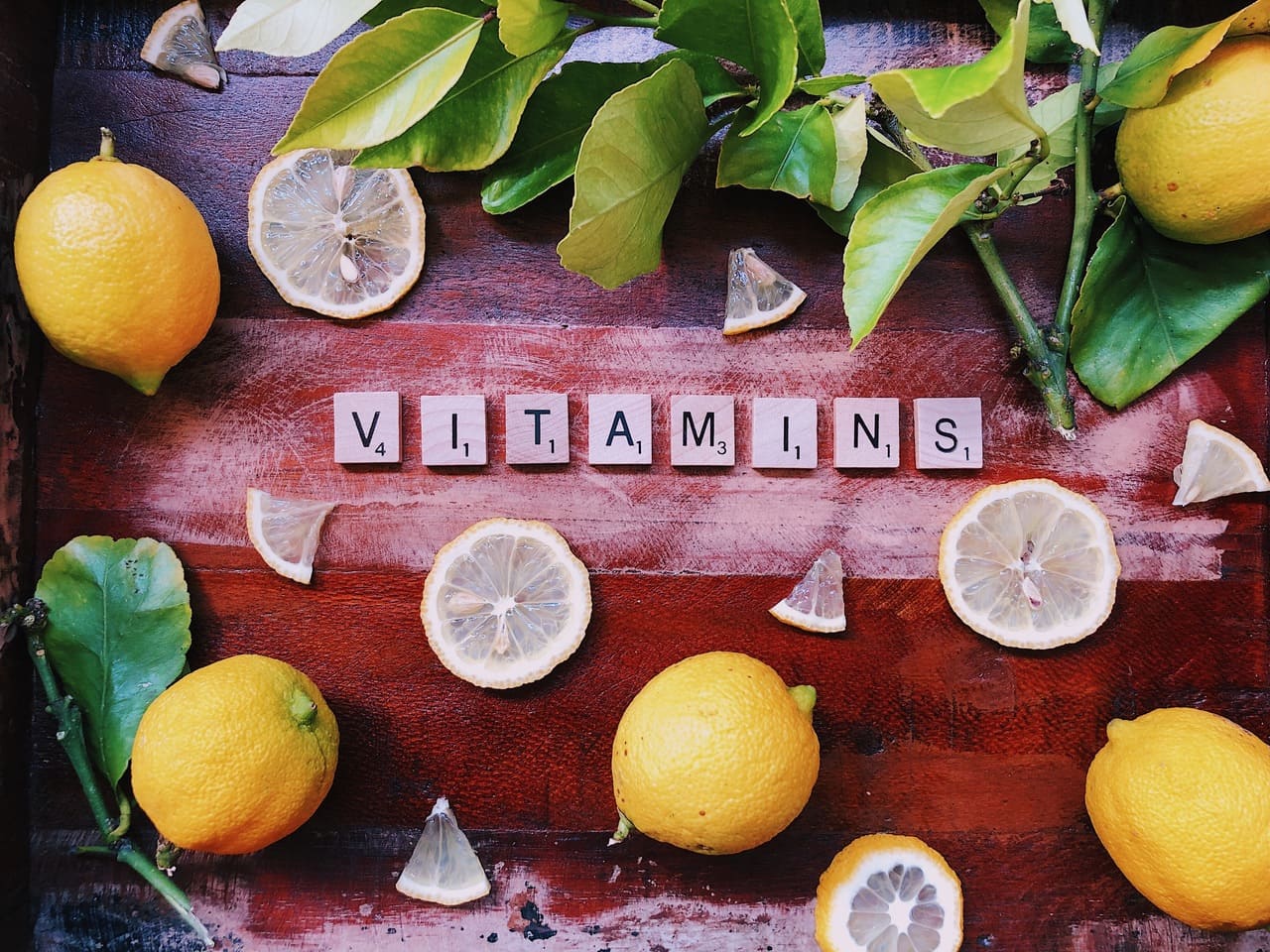There is so much talk about maintaining a healthy diet. You almost hear it everywhere: at the gym, your local clinic, and even when chatting with the neighbors. But what’s the first thing you think about when you hear, “healthy diet?” Twenty-seven percent of Americans related it to vitamins and veggies, and about 35 percent specifically mentioned core nutrients the meal must include.
Yet, over 27 percent have a poor diet compared to how excellent they believe their diet is. Research also proved that 92% of Americans suffer from at least one nutrient (vitamin or mineral) deficiency. The widespread potassium deficiency is a typical example.
Ultimately, the benefits of nutrients such as vitamins to the human body are numerous as they facilitate growth and development. There is, however, a common debate about whether you should take supplements, like Phytage Labs, in place of natural vitamins. This article explains what vitamins are and the differences between vitamins and supplements.
In This Article
What are Vitamins?
Vitamins are essential micronutrients organisms need in small quantities for growth, nutrition, and metabolism. The body doesn’t produce vitamins (or minimally), so organisms have to derive them from their diet. Vitamins are categorized as either water-soluble or fat-soluble.
Altogether, there are thirteen vitamins. Vitamins B and C are water-soluble vitamins, while Vitamins A, D, E, and K are fat-soluble. You can find vitamins in fruits, vegetables, dairy foods, oily fish, oils, and grains.

Functions of Vitamins
Vitamins provide the body with the following benefits:
- Vitamin A helps to maintain eye health and regulate the growth of tissues.
- Most B vitamins produce enzymes to help the body break down proteins, fats, and carbohydrates to convert into energy.
- Vitamin B9 is helpful in cell division and growth, producing red blood cells, DNA and RNA.
- Vitamin C or ascorbic acid is essential for producing collagen, healing wounds, absorbing iron, strengthening blood vessels, maintaining bones, cartilage and teeth, and functioning as a support for the immune system.
- Vitamins C and E act as antioxidants, preventing cells from being damaged.
- Vitamin D supports the strength of bones and other organs.
- Vitamin K helps with blood coagulation and protein synthesis.
- They help prevent diseases and conditions such as scurvy, congenital disabilities, blindness, and rickets.
What are Supplements?
A dietary supplement is a product made into a pill, capsule, tablet, or powder to provide extra nutrients such as vitamins, minerals, fatty acids, amino acids, and others. As the name suggests, they are meant to supplement our diet and not a substitute for food. Hence, you should take them in prescribed doses as they may become harmful to the body if not used appropriately.
Children, women, the elderly, people with dietary conditions, and people of different ages and forms can take supplements, but they have to be according to their needs and prescribed dosage.

Who needs supplements?
Anyone can take supplements, but if you fall within any of the following categories, you may need them:
- You’re 50 years or older. As we age, our bodies go through a lot of changes. We may not be able to digest food as easily, our skin becomes thinner and less elastic, and we may start to feel pain in our bones and joints. To help offset these changes, many people take natural health supplements.
- Natural health supplements can help improve our health and well-being as we age. They can help boost our immune system, help us better absorb nutrients, and help reduce inflammation. They can also help improve our cognitive function and memory.
- Diet doesn’t provide enough nutrients. While it is possible to get all the nutrients we need from diet alone, it is often difficult to do so. Hence, many people take supplements to provide their bodies with the necessary nutrients to stay healthy and function properly.
- You’re pregnant or lactating. As a pregnant or lactating woman, you must be careful about what you put into your body. That is because the nutrients you consume can have a direct impact on the health of your child. While you should always aim to get the majority of your nutrients from food, there are times when supplements can be beneficial.
- For example, if you are pregnant and do not have enough folic acid in your diet, you may be at risk of developing neural tube defects. Taking a folic acid supplement can help to prevent this. Similarly, if you are lactating and do not have enough vitamin D in your diet, you may need to take a supplement to ensure that your baby gets enough of this essential nutrient.
- You have dietary requirements or restrictions. There are many reasons why people might need to take supplements, even if they have a well-rounded diet. For example, vegetarians or vegans might need supplements to get enough vitamin B12, iron, or other nutrients found in animal products. People with food allergies or sensitivities may also need supplements to avoid trigger foods. And finally, some people need supplements because of medical conditions or medications that affect their diet.
- Regardless of your reason for taking supplements, it’s important to talk to your doctor before starting any new supplement regimen. They can help you determine which nutrients you need to focus on and how much you should take.
- You consume alcohol in large quantities. Supplements can help offset the negative effects of alcohol consumption, especially if you drink in large quantities. Alcohol can deplete the body of essential nutrients, vitamins, and minerals, which can lead to several health problems. Supplements can help replenish these nutrients and help reduce the risks associated with heavy drinking.
Similarities between Vitamins and Supplements
Vitamins and supplements are similar because they both provide nutrients to the body. They are pivotal to our growth and development and can help prevent and cure sickness and diseases.
What are the differences between Vitamins and Supplements?
While vitamins and supplements both help to provide vital nutrients to the body, they are different in the following ways:
- Vitamins are natural or organic nutrients from food such as fruits, vegetables, and dairy products, while supplements are products manufactured to complement the food.
- There are thirteen types of vitamins (A, B1. B2, B3, B5, B6, B7, B9, B12, C, D, E, and K), while supplement types are minerals, fatty acids, amino acids, proteins, and the other nutrients they provide.
- Vitamins serve as coenzymes (organic compounds that assist enzymes with catalytic activities such as energy production, transferring groups, and redox reactions) and precursors for the enzymes to facilitate metabolism.
- Supplements are synthetic products produced through chemical processes to simulate the nutrients we get from food.
- Supplements usually contain a higher quantity of nutrients but should be taken as a complement to normal food and not a substitute.
Which is Better, Vitamins or Supplements?
There is no specific proof that either of the vitamins or natural health supplements is better than the other. However, some studies have proven that a high intake of supplements may lead to different side effects, while food nutrients are associated with lower mortality risks.
People who eat lots of foods high in Vitamin A have a lower risk of having some types of cancer and measles. Also, high iron supplements may lead to cancer and damage the gastrointestinal system. A study also proves that adequate intake of nutrients was associated with reduced mortality, but this was only observed in nutrients from food.
Despite these studies, vitamins and supplements are both beneficial and should be taken according to the prescribed doses from qualified medical practitioners.

Are Multivitamins and Supplements the Same?
Yes, supplements and multivitamins mean the same thing. Better still, multivitamins are a type of supplement. Supplements are often made up of multiple vitamins to supplement the natural vitamins we derive from food intake. That is where the name “multivitamins” stemmed from.
What Supplements are Necessary?
Below are some of the supplements our body needs to maintain good health:
- Multivitamin: Vitamin supplements that help to prevent and cure vitamin deficiency.
- Magnesium helps improve sleep, mood, and blood pressure and reduces the risk of suffering from health risks such as heart disease.
- Probiotics: Complex carbohydrates that help properly function the gut and maintain a healthy balance between good and bad bacteria in the body.
- Fish oils: Fuels the body with omega-3 fatty acids, which help to maintain blood vessels, the immune system, and vital organs such as the heart and lungs.
- Vitamin D: Helps to treat vitamin D deficiency and conditions such as hay fever, brittle bones, and heart disease.
- Calcium Is essential in building strong bones and maintaining the heart, muscles, and nerves.
Talk to Your Doctor About Your Diet
Like over 50 percent of other Americans thought, you may think you’re on top of your diet when you aren’t. Consult with your doctor to know if you’ll need food supplements. If you consider taking natural supplements, you must speak with your doctor first. The FDA does not regulate natural supplements, so there is no guarantee of their safety or efficacy.
Additionally, natural supplements can interact with other medications you may be taking, so it is important to speak with your doctor to ensure that there are no contraindications. Your doctor can also guide you on which supplements may be right for you based on your individual health needs.










![Home Renovation Guide [2025]](/app/uploads/2021/04/design-hacks-1-378x300.jpg)
